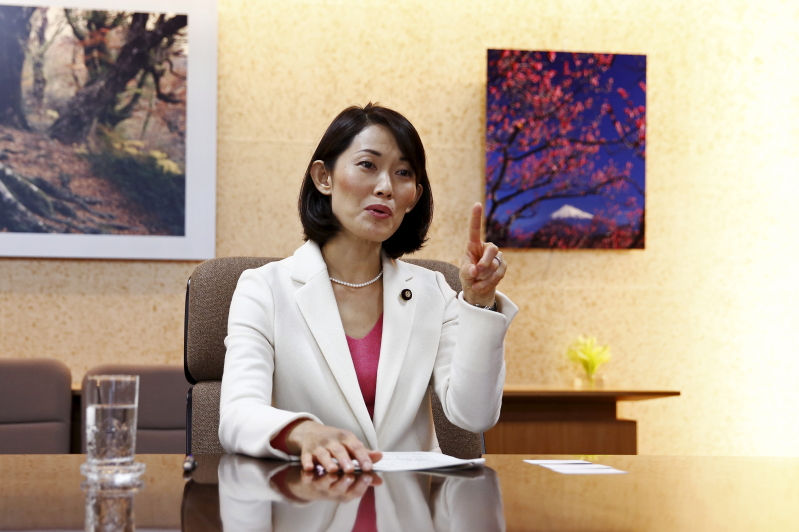
Japanese exports of advanced technology for coal-fired power plants will help fight global warming, the environment minister said on Tuesday, even though the world's richest nations had decided to restrict subsidies on such exports.
Many developing countries will continue to look to coal-fired power plants to meet their energy requirements and the key issue was to use efficient technology to curb greenhouse gas emissions, Tamayo Marukawa told Reuters in an interview.
Her comments came a week after members of the Organisation of Economic Cooperation and Development (OECD) struck a deal to restrict subsidies used to export technology for coal-fired power plants.
Japan, wary of regional competition from China, had been at the vanguard of opposition to phasing out coal export credits that benefit companies such as Toshiba Corp.
But Marukawa suggested the final deal to restrict export credits for inefficient coal plant technology may actually help Japan.
"The OECD agreement basically approved the use of high-efficiency coal-fired power plants," she said.
"There are countries that have no choice but to build coal-fired power stations due to cost. Countries other than Japan have also been exporting coal-fired power stations to these countries," she said.
Marukawa, who was appointed to be the ministry in early October, said Japan can make "enough contributions" to the global push to trim greenhouse gas emissions by providing the country's coal technology that is more efficient than others.
Japanese Prime Minister Shinzo Abe pledged in 2013 to triple the country's export of infrastructure that includes power stations to about 30 trillion yen ($244.88 billion) by 2020.
Asked whether Japan's export of coal-fired power stations will rise further, Marukawa said: "It may rise, but it may not if we lose in cost competition against other countries. It depends on the market."
The OECD talks in Paris were viewed as a final chance to end export credits for coal, the most polluting of fossil fuels, before the two-week United Nations climate summit on a global deal to curb climate change begins on Nov. 30, also in Paris.
The world's No.5 emitter of CO2 has a goal to cut greenhouse emissions by 26 percent from 2013 levels by 2030.
Marukawa, who plans to attend the summit, said Japan aims to help the world combat global warming through not only providing financial support but by also offering energy-saving technology.






